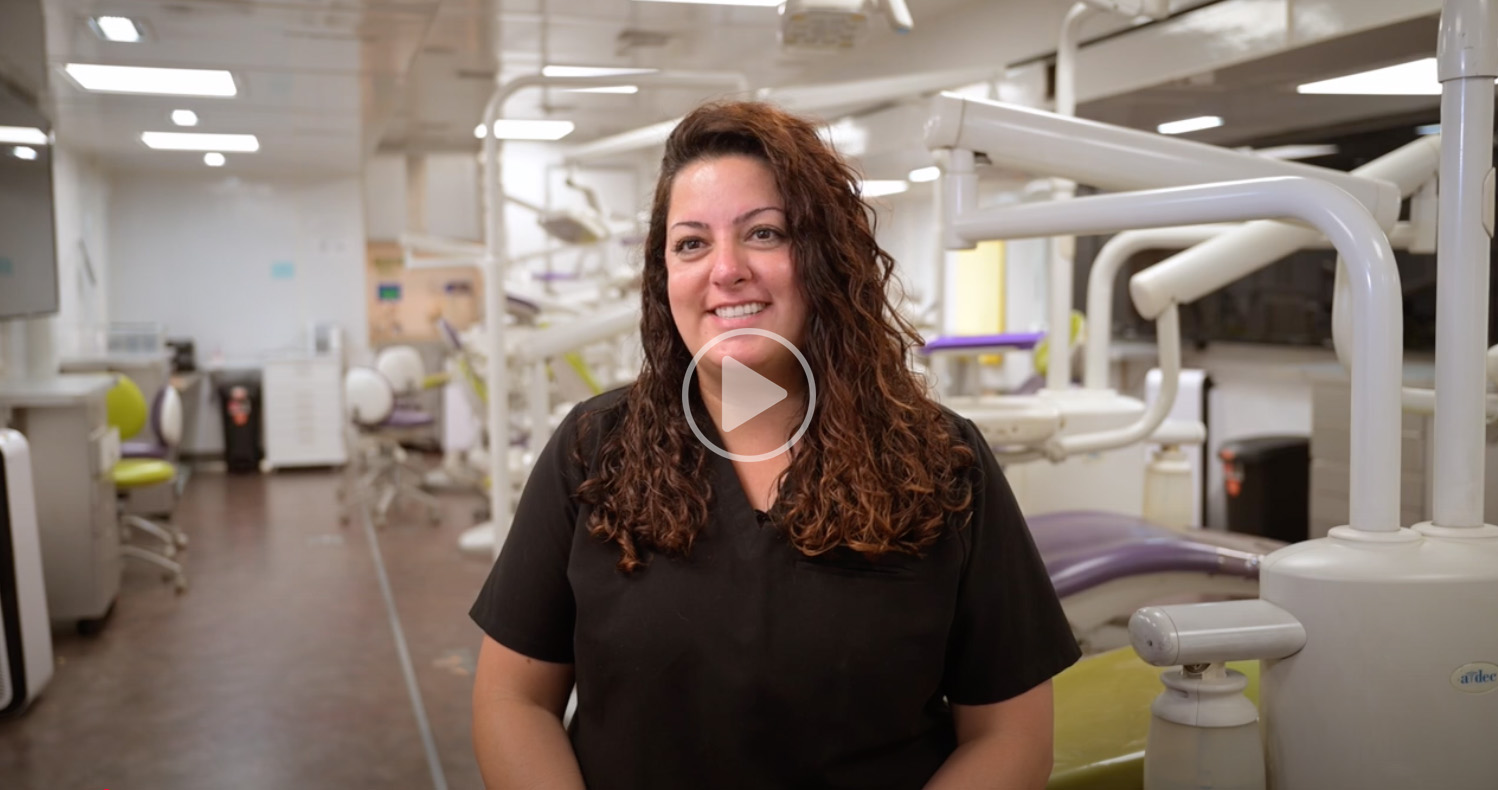Ostrow Completes Fundraising Campaign for Mobile Dental Clinic
Alumni and friends helped make the dream a reality, raising $1 million for the mobile dental clinic, with priority going to replacing an aging Instrument Management System (IMS) unit, the heart of the operation.
BY JAMIE WETHERBE MA ’04
THOUSANDS OF DENTAL STUDENTS HAVE BEEN IMPACTED by the USC Mobile Dental Clinic, which has provided essential dental care to underserved communities for nearly 60 years.
So, it seems fitting that it’s taken a large number of supporters across the USC community to usher the mobile dental clinic fleet — the nation’s largest, outside the U.S. military — into a new era.
After 27 years in operation, the clinic’s Instrument Management System (IMS) unit — the mobile fleet’s workhorse housing the materials, instruments and equipment required to serve up to 1,000 patients each year — was fast approaching the end of its road.
“Our trailer has reached the limits of its functionality,” Associate Dean, Dental Public Health & Community Outreach Roseann Mulligan says. “Without an updated and better-equipped workspace, IMS could have become a bottleneck that hinders our ability to grow, innovate, and maintain the high standards of care and education that define our program.”
Help From Friends
In 2023, USC launched the Power of 1,000 fundraising campaign, an initiative to raise $1 million for the Mobile Dental Clinic, prioritizing the replacement of the aging IMS, by securing $1,000 donations from 1,000 alumni and friends.
Over the course of the campaign, several supporters made significant donations, including Mulligan and husband, Associate Dean of Distance Learning and Telehealth Glenn Clark.
The couple — who pledged $100,000 — have long been inspired by the clinic’s mission of compassionate care and community engagement.
“Both of us served as student directors of the USC Mobile Dental Clinic during our respective times in dental school — though we didn’t know each other back then. That experience was profoundly meaningful to each of us,” Mulligan says. “We’re proud to support a program that shaped our values and continues to make such a real difference in people’s lives.”
Organizations dedicated to expanding dental care also made major donations to the clinic, including United Concordia Dental Insurance ($50,000).
The Envista Smile Project, a philanthropic foundation ensuring underserved communities have access to oral care, donated $750,000 to Ostrow’s Access to Care Initiative. Of those funds, $250,000 will directly support the new IMS unit to ensure the continuity of care to children, families and veterans.
“We saw an opportunity to amplify our shared mission,” Envista Smile Project Manager of Events Rubin Casas says. “Beyond physical improvements, we hope this collaboration inspires future generations of dental professionals to embrace service-oriented care, ensuring that empathy, expertise and innovation continue driving oral health forward.”
Introducing “Uncle Maurice”
Another large donation — a pledge of $500,000 — came from the Maurice Amado Foundation, a family foundation led, in part, by brothers and dentists Mark Tarica ’70, DDS ’74 and Samuel Tarica DDS ’72.
The Taricas have a history of supporting Ostrow, a legacy that started with their father, also a dentist and alum.
“From the time he graduated in 1937 to the time that he died, he felt it was very important to give back to the school,” Samuel Tarica says. “Mark and I want to do the same.”
The Maurice Amado Foundation was started by, and named after, the Tarica’s great uncle, and has directed grants to a variety of organizations around the world for more than 60 years.
Mark Tarica and Samuel Tarica had been looking for an opportunity to support the Mobile Dental Clinic.
“During my time in dental school, I was part of the first mobile clinics,” Samuel Tarica says. “I saw the start of what’s evolved into the clinics of today.”
When Mark Tarica learned of the fundraising campaign, an idea started to percolate. “I thought it might be a cool thing to name the trailer after our uncle — it almost sounded cute,” he says.
Thanks to the investment from the Maurice Amado Foundation — and many others — “Uncle Maurice” will be state-of-the-art.
The vehicle, expected to roll out next year, will feature energy-saving solar panels, 30 percent more space for organization and storage and a much-needed break room for staff during long clinic days.
Perhaps the most significant upgrade will be the advanced satellite technology for secure Wi-Fi connections, allowing for the first time real-time management of electronic health records, video consultations with dental school specialists and increased access to specialty services through teledentistry.
“By enhancing equipment, expanding the clinic and integrating telehealth solutions, we aim to make dental care more accessible and effective,” Casas explains.
For Mark Tarica, the benefits are threefold.
“It certainly helps the community and the university,” he says. “It’s fabulous for the dental students — this is an avenue where they can gain serious experience, as providers and professionals dedicated to compassionate, equitable care. It’s a win-win-win.”
And that large number of supporters who helped bring this vision to fruition? Each will be immortalized for their generosity, with their names being printed on the side of the IMS unit.
